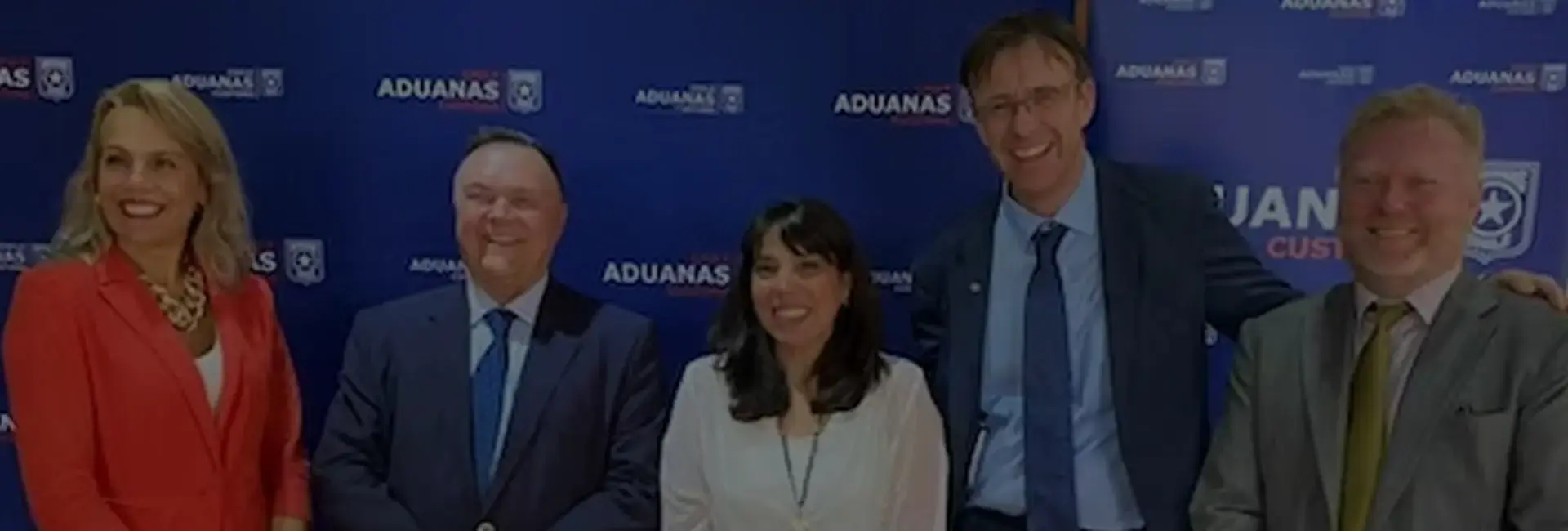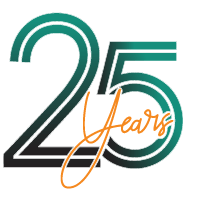In recognition of the election of Mr Samir J. Shah as Vice-Chair of Customs Affairs Institute (CAI) and Mr Tomas Arvidsson as Vice-Chair of Region Europe (REU), FIATA congratulates them.
Currently serving on the Board of Directors of ACAAI – Air Cargo Agents Association of India, Mr. Shah is the Past Chair and Advisor to FFFAI – Federation of Freight Forwarders Associations in India. Since 1984, he has been a licensed customs broker in India with extensive customs experience. His contributions have included the implementation of the Indian Trade Facilitation Agreement and books on Indian Customs Clearance and Freight Forwarding.
Samir J. Shah has been a CAI delegate for a number of years, and he will support CAI Chair Steve Parker in his newly appointed position.
In addition to being Vice Chair of the CLECAT Rail Logistics Institute, Mr Arvidsson also chairs the Swedish International Freight Association’s Railway, Contingency, and Defense Committees. He has advised the transport sector for 10 years as a Senior Advisor at RailLog. REU Chair Antonella Straulino will be supported by Tomas Arvidsson.
Upon confirmation at the General Meeting 2023, their official terms and titles will commence, and in the interim, the Vice-Chairs can begin working. Congratulations to both in their newly assigned roles, and we wish them the best of luck in their upcoming roles.
At the WTO Agri-Food Business Day, industry stakeholders shared FIATA’s views on trade facilitation, digitalization, and e-commerce.
As part of an Agri-Food Business Day panel on ‘Trade Facilitation, Digitalisation, and E-Commerce’, Trade Facilitation was the topic of discussion at the WTO on 8 December. Stéphane Graber, FIATA’s Director General, presented how digitalization can facilitate trade and increase access to food. According to UNCTAD’s recent findings, increased costs for grain and its transport will result in a 1.6% increase in prices. It was stated that digitalization and the adoption of e-bills of lading can save up to 6.5 billion USD in direct costs.
The ICC Global Alliance for Trade Facilitation panelist, Valerie Picard, and FIATA agreed that we do not need to develop new tools for enhancing trade facilitation. Instead, we need to focus on the full implementation of existing tools such as AEO schemes, NTFCs, and single windows. FIATA reiterated the need for certainty regarding competition, as expressed by a panelist from the North American Export Grain Association. It was agricultural exporters in America who sought the changes brought about by the US Ocean Shipping Reform Act, 2022. As a result of this initiative, FIATA is able to guarantee access to vessel space, which is essential for the timely transport of perishables and food grains.
Click here to learn more about the event.
FIATA presents eFBL and FIATA priorities to South American associations
At the XXIII FITAC International Congress in Colombia on December 7, FIATA Director General Stéphane Graber participated in a panel discussion on the role of the private sector in strengthening AEO programs, where ASAPRA (International Association of Professional Customs Agents) and AIOEAAL (International Association of Authorized Economic, Customs and Logistics Operators) participated.
It is FIATA’s intention to continue advocating for AEO programs that provide businesses of all sizes with comprehensive benefits. In the interest of greater trade facilitation and a safer supply chain, AEO programs are an excellent opportunity to foster dialogue and cooperation between customs and economic operators.
Shortly after, on 9 December, FIATA President Ivan Petrov and Director General Stéphane Graber were accompanied by the President and the Director General of ALOG (Asociación Logística – Chile), Neil Taylor Montgomery and Cynthia Perišić Ivandić, at a meeting with the Colombian customs authorities to define a way forward for the acceptance of the FIATA eFBL by the customs authority.
Although there is still much to be done, such positive and constructive meetings enable the digitalization of the supply chain and confirm FIATA’s leadership in multimodal transport document digitalization.
Take part in the US Customs and Border Protection unique entity identifier transmission test!
A National Customs Automation Program test is being conducted by U.S. Customs and Border Protection (CBP) involving the electronic transmission of distinct entity identifiers through the Automated Commercial Environment (ACE). Volunteers who regularly export to the US are invited to participate in the “Global Business Identifier Evaluative Proof of Concept” (GBI EPoC).
A test participant is voluntarily required to provide specific global business identifiers (GBIs) for the manufacturers, sellers, and shippers of merchandise covered by specified types of entries, which are restricted to certain commodities and countries of origin. Participants may also provide specific GBIs for exporters, distributors, and packagers associated with covered entries. CBP and PGAs will be able to access the underlying data associated with GBIs (referred to as the “GBI data”) during this test to determine whether the submission of GBIs during entry filing will enhance the tracing of certain commodity supply chains.
As announced in the Federal Register, the GBI EPoC will begin on December 19, 2022, and run until July 21, 2023. On December 2, 2022, CBP began accepting requests for participation from importers of records and licensed customs brokers. It will continue to accept such requests until the end of the GBI EPoC.
You can find more information here.
Interested parties should email GBI Inbox (please read the specific conditions on the website).
What to remember from the Trans-European Coordination Meeting on ICS2 Release 2?
On 12th December, DG TAXUD of the European Commission held a trans-European coordination meeting to discuss Advanced Cargo Information (Air Cargo) Import Control System 2 (ICS2) Release 2. A joint meeting was held with ICS2 National Project Managers from EU Member States, Switzerland, and Norway. This meeting was attended by representatives of other trade associations and economic operators affected by ICS2 Release 2.
DG TAXUD invited FIATA to update it on the readiness of its industry to implement ICS2 Release 2. FIATA ICS2 Release 2 representative and Advisory Body Safety and Security Delegate, Mr Serkan Eren, shared the survey results with participants, recommending that additional information be shared on the topic on a regular basis, and freight forwarders, including non-EU clients, should attend more training/webinars.
By clicking here, Economic Operators can learn more and do self-learning.
From March 2023, FIATA will provide continuous updates on the implementation of ICS2 Release 2. Please contact us at legal@fiata.org for more information.
In cooperation with FIATA, the UNECE organized a Trans-Caspian meeting
In cooperation with FIATA, the UNECE held a meeting of the ECO/UNECE Coordination Committee on the Trans-Caspian and Almaty-Istanbul Corridors on 16 December. The session “Potential for further diversification of multimodal inland transport routes between Asia and Europe” was moderated by Andrea Tang, Head of the International Trade and Law Unit at FIATA. As part of FIATA’s freight forwarding perspective, FIATA thanks the following representatives for their participation.
As well as acknowledging the increased interest in the Trans-Caspian corridor, Mark Bromley (FIATA MTI Chair) also pointed out that there are currently delays on the route and a heavy reliance on paper documents in the region, making it difficult to fully digitalize transport documents.
Farid Saffarzadeh (Bar Baran Iranian International Forwarders and Shipping Agency) gave an overview of the various transport routes and corridors in the region, the role of Iran, and the interest in the Trans-Caspian corridor.
According to Yelena Vassilevskaya (Kazakhstan Freight Forwarders Association), freight forwarders are becoming more interested in multimodal routes passing through the Caspian Sea. There are, however, complexities involved due to more transshipments, requirements for various transport documents, difficult calculations of transport tariffs, and the unpredictability of delivery times. To identify bottlenecks and develop recommendations, she suggested sharing more information with the industry, optimizing existing tools such as the FIATA Multimodal Transport Bill of Lading (FBL), and conducting in-depth studies.
The Chair of FIATA WG Rail, Ole Andreas Hagen, discussed the activities of WG Rail in relation to rail corridors around the world and highlighted the potential of the secured digital FBL for promoting digitization and facilitating cross-border trade.
At the conclusion of the meeting, all participants agreed that industry and government cooperation is key to the project’s success. To facilitate the use of the Trans-Caspian Corridor and the FBL and CIM/SMGS, an analysis should be conducted to identify bottlenecks, and barriers, as well as develop specific recommendations. In addition, UNECE and FIATA will explore ways to provide a broader level of information sharing for the industry.
In addition to supporting members in this regard, FIATA’s Multimodal Transport Institute will continue to work closely with UNECE and other stakeholders on the development of this corridor.
A positive change in billing practices for detention and demurrage
Recently, the US Federal Maritime Commission (FMC) conducted a public consultation on its proposed rulemaking on detention and demurrage billing practices. In its response to the consultation, FIATA praised the proposed rulemaking for clarifying invoice information and establishing clear timelines within which charges should be billed or contested. This is because mitigation is sought. According to FIATA, non-vessel operating common carriers (NVOCCs) and multimodal transport operators (MTOs) should be given the same 30-day period to add, contest, or pass on charges related to detention and demurrage, as vessel operating common carriers (VOCCs) do. FMC’s effort to clarify who may be charged for demurrage and detention was also welcomed by FIATA. FIATA stressed how critical it is for forwarders, customs brokers, or any MTO to be able to pay the invoices if instructed to do so by their client, the billing party, while not being responsible for VOCCs.
The FIATA Working Group Sea, which will discuss this topic in 2023, will continue to monitor developments in this area. You can find FIATA’s comments here, as well as comments submitted by the public to the consultation.














